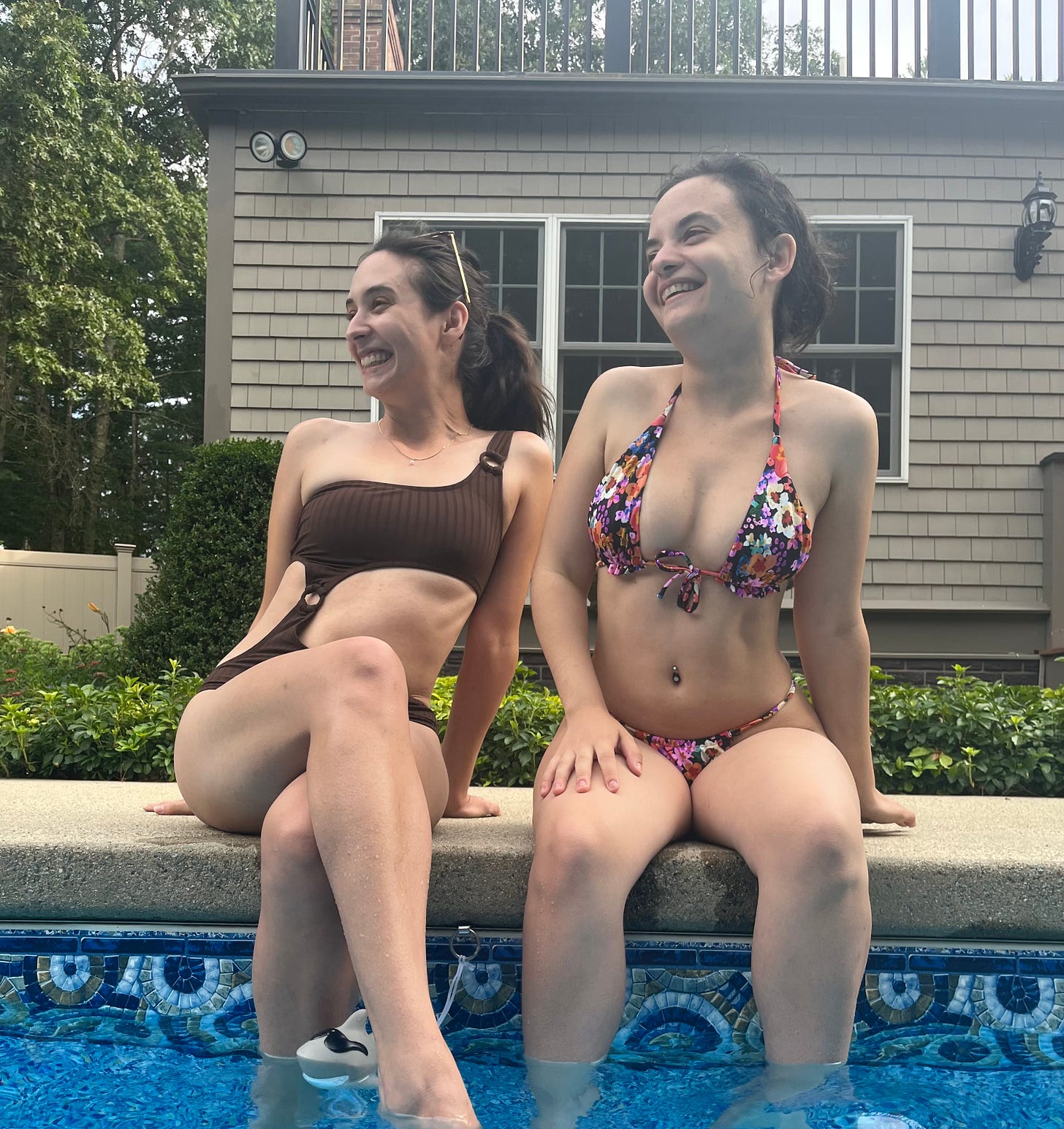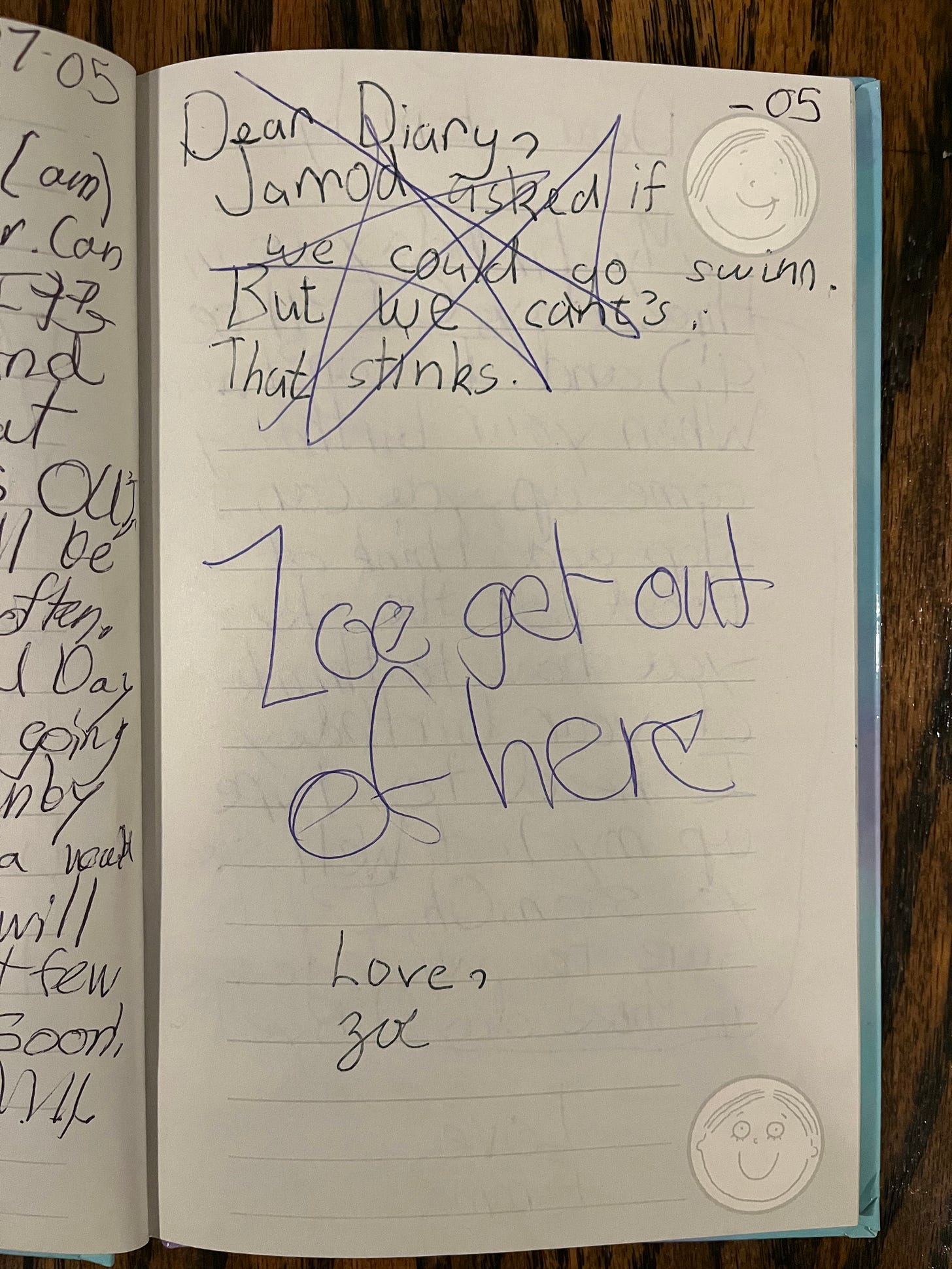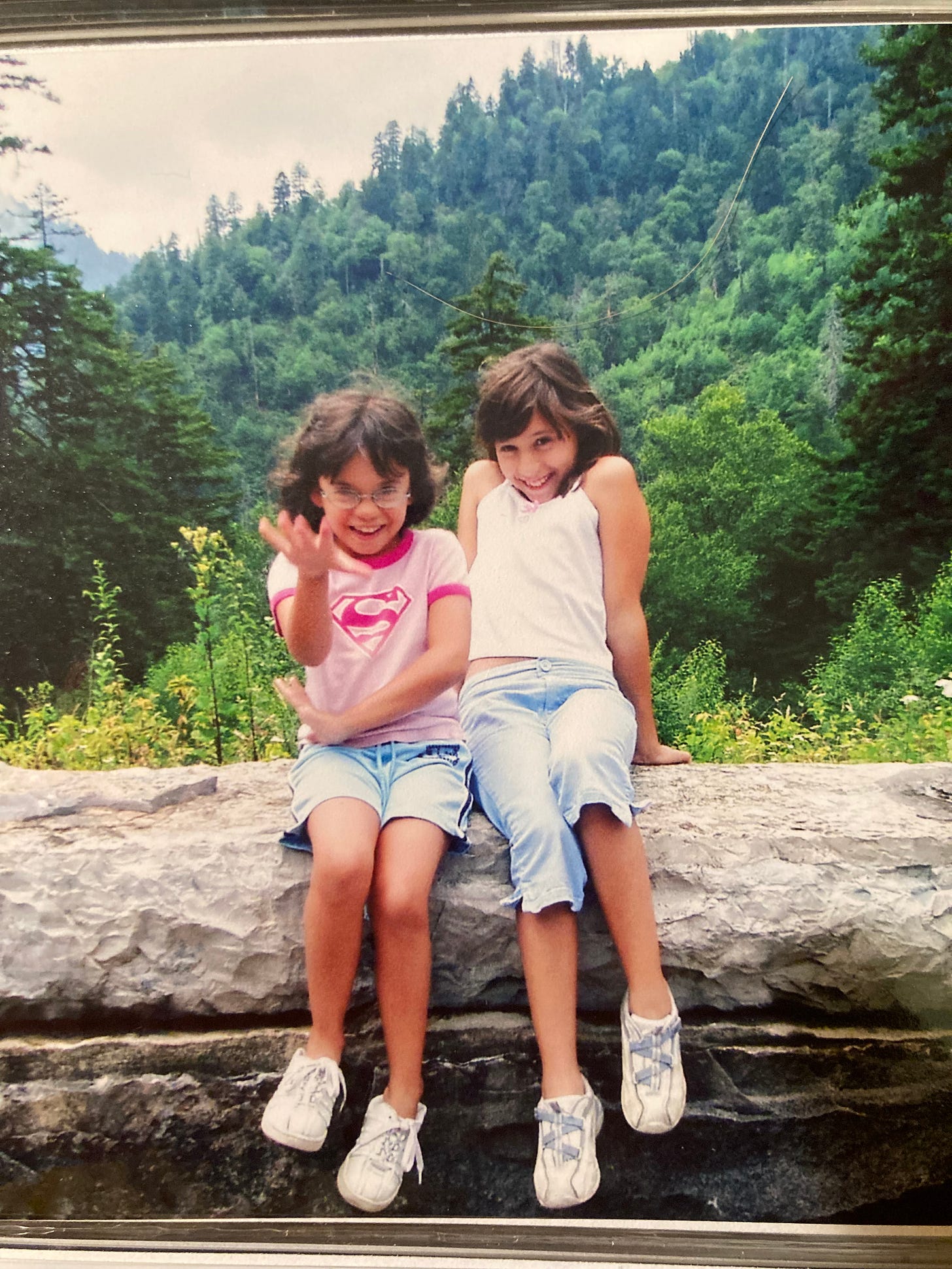This week, I had the pleasure of hanging out at home for a few days with my little sister Zoe. A scientist currently working on her master’s in behavioral neuroscience, Zoe and I are extremely different people and always have been. She was my arch nemesis as a child and a best friend as an adult. She was either my first or second subscriber to this newsletter and has been supportive of my milling for much longer than I’ve been writing about it here.
This morning over bagels and coffee, I asked her some questions about her research and creative practices. A bit of our conversation is below.
Emma: Have you ever kept a journal?
Zoe: No, never.
E: Actually I think at least one time you wrote in my journal and I wrote an angry message of reply to you, I’ll try to find that tonight.
Z: [laughing] I’m sure that’s how 95% of journals start, with a personal vendetta.
E: So you’ve never kept a journal but you are a very creative person. We danced together as kids, you were an art history minor, and you’re a more voracious reader than me to this day. What’s one of the best things you’ve read this year?
Z: Unmask Alice was great, it investigates the Go Ask Alice book of the 70s that’s sometimes been listed as non-fiction, fiction, biography, diary, all of it. The journalism is well-practiced, but the writing is really sassy which I love. And there’s a part at the end that made me cry that I don’t think was supposed to but I did anyway. But I haven’t had a lot of time to read this year.
E: Yeah makes sense, writing a master’s thesis and all. What’s the process of that like? How long is the thesis?
Z: Oh god, I don’t know, I don’t have it on a single document. It’s been going well though, just down to revisions and consolidating now. The process has been slow between writing and getting edits back from my advisor and then making those edits. Sometimes there’s months between the work, but I’m mostly done and just have the presentation for the defense now.
E: Can you describe your thesis for a non-scientific audience?
Z: No.
E: Fair. What implications does your research have then, for us normal people?
Z: Well, none really. I do basic science so the implications are to help other scientists who work with cell and animal models that specifically replicate human processing or just to give another researcher an idea. My work looks at how novelty from food and environment can reduce eating behavior. One of the main characteristics you’ll see in restrictive eating disorders is a two-part condition of low novelty seeking—the tendency to favor familiar circumstances—and then low risk taking. So I guess that’s the best I can do for broader implications.
E: Nice, well that does actually answer my question. What about your creative hobbies outside of the lab?
Z: I’d say cooking and gaming are my big ones right now. I’m playing Fallout: New Vegas again currently. Earlier this year I did Red Dead 2 and then Red Dead 1, Oblivion, and Skyrim again. That’s a lot of what I do in my free time, I just haven’t had a lot of that with having to TA a class that is annoying [Intro to Neuro].
E: Final and lamest question—what do you think of this newsletter?
Z: Not a lame question. I don’t get that many chances to read your writing since a lot of it is in your journals or different articles you’ve written for other people. But I don’t get to see that much writing that is you, so I’ve been enjoying it.
Zoe’s back off to Boston this morning and will be defending her master’s thesis in early December. She doesn’t need them, but send her your best vibes.






I’m reading The Immortal Life of Henrietta Lacks and loving it. it is about cell research. please ask Zoe if she read it and what she thinks about it.